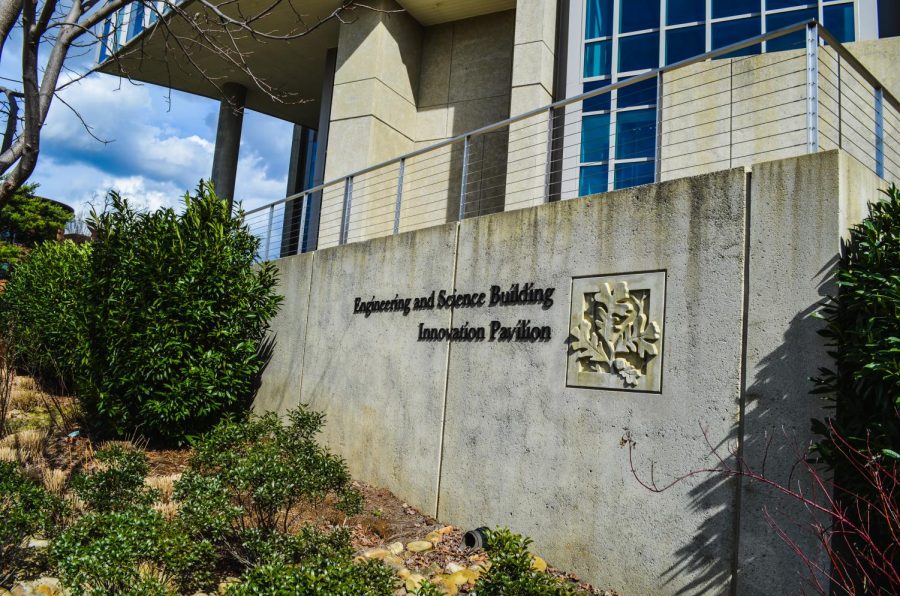Nashville was less affected by the May 2021 shutdown of the Colonial Pipeline, a prominent source of gas for the Southeast, than other regional markets, per a June study led by the Vanderbilt Center for Transportation and Operational Resiliency (VECTOR) and the DHS Coastal Resilience Center of Excellence at the University of North Carolina-Chapel Hill.
According to the study, Nashville’s resilience can be attributed to how it and surrounding cities have greater access to petroleum via the Cumberland/Tennessee river couplet system, creating multiple transport delivery options for fuel into the cities.
“The rationale behind launching the study was that Vanderbilt is partnering with the U.S. Department of Homeland Security and the U.S. Army Corps of Engineers to produce a national port resilience guide,” Miguel Moravec, a civil engineering Ph.D. student and analyst for the study, said.
Along with Janey Camp and Craig Philip, associate director and director of VECTOR, respectively, Moravec focused on fuel shortages in Nashville, Chattanooga, Knoxville, Raleigh, Charlotte and Asheville. The study utilized data from the U.S. Army Corps of Engineers and Gas Buddy, a technology company that tracks fuel prices via crowdsourced reports of gas station outages.

Using this information, the research team found that, by day 12 of the pipeline shutdown, 18.9 percent of gas stations in Nashville experienced outages, while cities in North Carolina reported 40 to 60 percent gas station outages. Nashville also has the strongest waterborne petroleum access of cities included in the study, while the areas in North Carolina lack such access.
“For the first time, we’re mobilizing the power of normal people to get really specific data about the impacts of this outage,” Moravec said.
The shutdown of Colonial Pipeline and resulting fuel shortages began on May 7 when DarkSide, a cybercriminal hacking group, launched a cyberattack on Colonial Pipeline’s systems, stealing nearly 100 gigabytes of their data and disrupting the pipeline’s operations. The shutdown continued for around 6 days and nearly every gas station in the Southeast saw hours-long gas lines for around one week.
In an attempt to remedy the situation, the CEO of Colonial Pipeline approved a $4.4 million ransom payment to DarkSide, allowing Colonial Pipeline to unlock the systems that had been hacked and restore its function. The U.S. Justice Department recovered $2.3 million of the ransom payment, but it took days for the consumer market to recover, and weeks for the Colonial Pipeline. The fuel shutdown led to consumer panic and changes in gas prices, which rose above $3 per gallon for the first time in 6 ½ years.
The Colonial Pipeline remains the only pipeline serving southeastern U.S. markets and provides 70 percent of gas in Middle Tennessee as of 2021, per WBIR News. Moravec stated that earlier events like a 2016 pipeline explosion and Hurricane Harvey prompted government officials to find more ways to maintain energy security during future pipeline disruptions.
“The federal government is very interested in Middle Tennessee because we are particularly vulnerable to this kind of disruption,” Moravec said. “Not all areas of the country are so dependent on one pipeline—a lot of areas are served by two or three, but Middle Tennessee is just served by Colonial.”
Greater Nashville’s relative immunity to the fuel shortage proved crucial in understanding the importance of waterborne petroleum and the infrastructure that allows for its widespread availability.
“We cannot underestimate the need for multiple transport delivery options that allow essential goods and products to travel across the country,” Camp said in a June 7 press release. “American cities and states will need to keep this in mind as they plan for long-term, resilient infrastructure investments over time.”
















